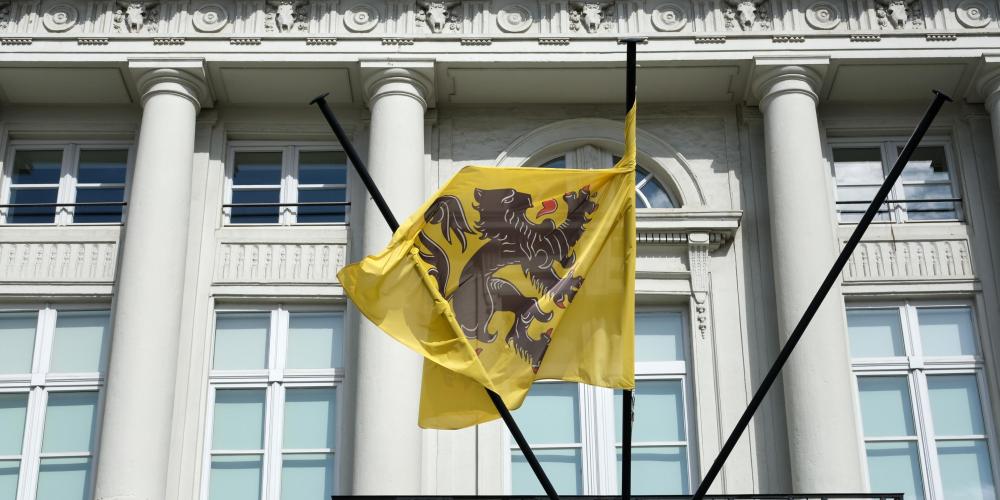
Flanders likes to call itself inclusive, but according to VUB researcher Randy Haers, that promise doesn’t hold true for everyone. In his piece for De Morgen, he exposes the gap between rhetoric and reality. Haers is a postdoctoral researcher with the Crime & Society Research Group (CRiS) at the Vrije Universiteit Brussel, where he studies how security policy takes shape and how science and practice can work together.
“Flanders is inclusive,” reads the N-VA’s statement of principles. Everyone, it says, is needed to make our society a better place to live together. It sounds generous and unifying — until you realise that this “better place” isn’t meant for everyone.
Anyone who’s followed Belgian politics since the last elections can see ever more clearly what this so-called inclusive nationalism really means: warm, generous and trusting towards those at the top of society; suspicious, controlling and punitive towards those struggling to keep their footing at the bottom.
It’s exactly what the French sociologist Loïc Wacquant calls the rise of the neoliberal penal state: a society that dismantles social security while expanding its machinery of control. Poverty is no longer tackled with solidarity, but with suspicion.
How that logic is taking shape in Belgium and Flanders becomes increasingly visible across different domains. In justice, the net of social punishment is cast ever wider, with more prisoners and community sentences — not because crime is rising, but because policy is getting harsher. In labour and welfare policy, we see the same pattern: social services shifting from guidance to surveillance. At the VDAB, that means tighter checks on jobseekers; at local welfare offices, it means more conditions attached to support.
Now that the federal and Flemish governments are revealing their true colours, it’s worth looking at a few of their policy initiatives through that same lens. Behind the promise of an “inclusive Flanders” hides a society that’s inclusive mainly for those already strong enough to stand tall.
The hunt for the little man
Take the recent stories about entrepreneurs paying themselves a token salary to qualify for study grants or other social benefits. For them, a simple declaration on honour is enough. Swear an oath, and done.
Now compare that with the social tenant who suddenly finds a private detective on their doorstep, checking whether they secretly own a small plot of land abroad. Since “detective” Diependaele introduced his stricter checks, exactly 309 fraudsters have been caught. Instead of tackling the endless waiting list of around 182,000 people, the government chose to aim a bazooka at social tenants. The money didn’t go into housing, but into creating an enemy image.
And now there’s the latest policy idea: to cap social rights. The proposal comes from the same detective who launched the hunt for social tenants in the previous legislature — only this time, in his new role as minister, cap-setter and party president. Here, no oaths — just proof, home visits and sanctions. Yet experts have been pointing out for years that social rights in Flanders are actually underused: many people who are entitled to them don’t claim them out of shame, ignorance or bureaucratic hurdles. Meanwhile, the number of companies keeps rising spectacularly year after year — so much so that even some in the Wetstraat are beginning to smell a rat.
The same trend runs through the rhetoric around the long-term unemployed and the sick: they’re portrayed as scroungers, a label our friends from the Inc. Society rarely receive. But it doesn’t stop at rhetoric. It turns into policy: activation schemes that ignore the complex realities of people with health or psychological difficulties, and pension policies that punish people for being women and mothers, for having had — and beaten — cancer.
Hollowed out to the bone
“Everything’s gone, all used up,” our prime minister recently declared. Everything — except for those at the top. There, the tap keeps flowing freely — in tax breaks, fast-tracked permits and political pampering.
While those at the bottom are met with mistrust, the Flemish industry gets the champagne treatment. No suspicion there, only praise. Where citizens and civil society organisations face ever higher hurdles born of political distrust, property developers and industry are indulged with ever-more generous licensing policies. After all, they’re the ones “creating our prosperity” — and, not to forget, polluting our land and damaging our health.
The same goes for the growing flexibilisation of the labour market: the federal government seems mostly busy doing favours for business. Employers relish lower labour costs and more freedom, but it’s not the bosses who work night shifts or watch their income fluctuate month after month. They don’t have to compete with students and flexi-workers. It’s the low-skilled who pay the price. And our social security remains the biggest victim: hollowed out to the bone.
What’s emerging is a society that’s comfortable at the top, while the steps upward are being kicked away one by one. The Flemish dream is slowly turning into a nightmare.
Read the opinion piece on De Morgen (in Dutch): Vlaanderen inclusief? Niet voor iedereen | De Morgen